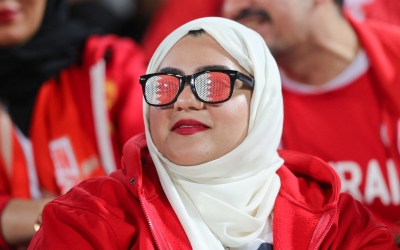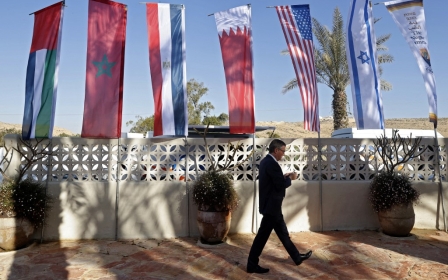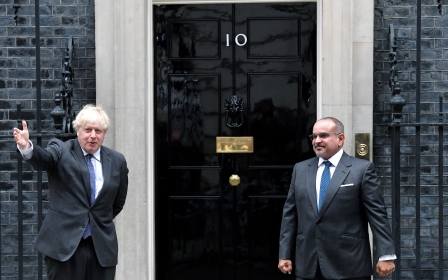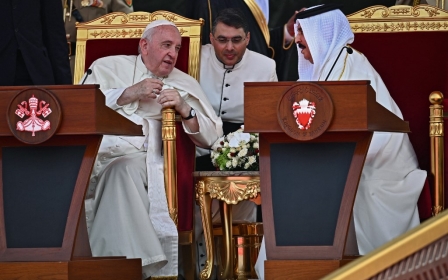Bahrain heads to the polls amidst ban on opposition candidates
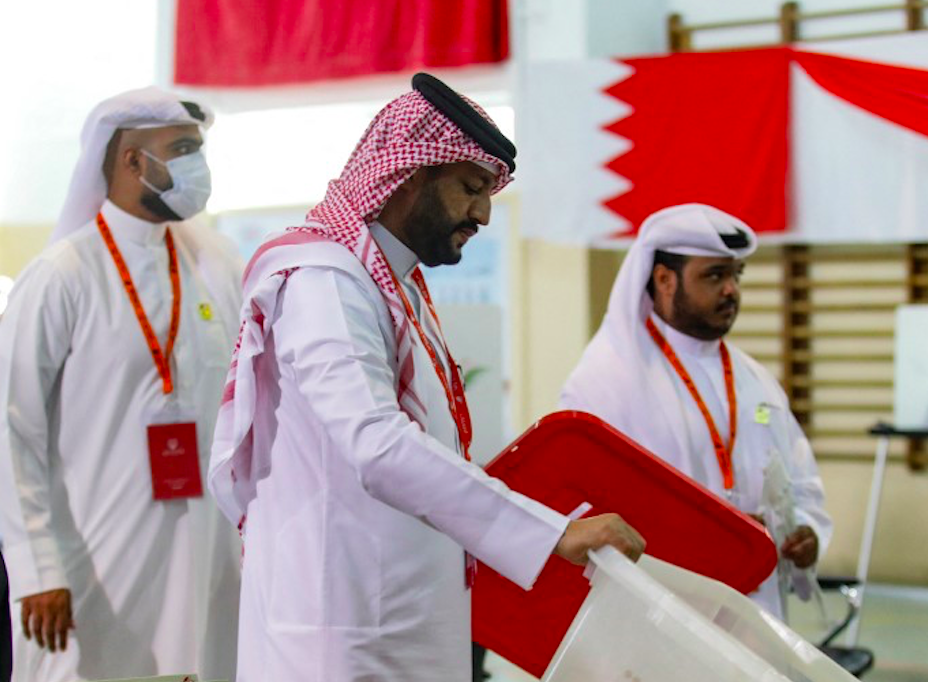
Bahrain heads to the polls on Saturday with a record number of people standing in the elections despite a ban on opposition candidates running in the Gulf state's parliamentary and municipal elections.
More than 330 candidates, including 73 women, are competing to join the 40-seat council of representatives, the lower house of parliament that advises King Hamad bin Isa Al Khalifa.
Images posted online showed Bahrainis waiting in line at polling stations across the country waiting to vote.
The elections come more than a decade after a 2011 crackdown on protesters demanding political reforms.
But the country has barred its two main opposition groups, the Shia Al-Wefaq and secular Waad parties, from fielding candidates. The parties were dissolved in 2016 and 2017.
"This election will not introduce any change," said Ali Abdulemam, a UK-based Bahraini human rights activist.
"Without the opposition we will not have a healthy country," he told AFP.
The Bahrain Institute for Rights and Democracy (Bird) rights group dubbed the election a "sham" that was "devoid of legitimacy and serves the purpose of maintaining the status quo".
"A cycle of repressive laws passed over 20 years, alongside threats of imprisonment to those who publicly call for a boycott, place this year's election as the worst since the parliamentary processes resumed in 2002," said Sayed Ahmed, the director at Bird.
"Dismantling and excluding opposition voices by forbidding them from running, imprisoning them and forcing them into exile makes a mockery of democratic principles. These are nothing more than pseudo-elections."
'Political repression'
Amnesty International said this week that elections would be held in an "environment of political repression".
A government spokesperson pushed back against that criticism on Saturday, saying in a statement that Bahrain was a "vibrant democracy".
"The exercise of political rights in Bahrain is protected by the constitution, barring cases where nomination requirements are not met. This is standard practice in all democratic countries," the spokesperson said.
"Requirements include not having a criminal record or not belonging to a society dissolved due to their court-proven involvement in acts of violence in contravention of legitimate political activity."
The spokesperson added: "The right to vote too is also a constitutional right, but not an obligation. No one is penalised for choosing not to vote."
Late on Friday, hackers targeted the official election website and websites for parliament and the state news agency. The websites were restored on Saturday afternoon.
The interior ministry said on Twitter that the sites were "targeted to hinder the elections and circulate negative messages in desperate attempts" to discourage voting.
The identity of the hackers was not immediately clear.
Middle East Eye delivers independent and unrivalled coverage and analysis of the Middle East, North Africa and beyond. To learn more about republishing this content and the associated fees, please fill out this form. More about MEE can be found here.


